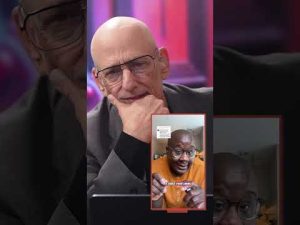**Controversial Conversations: The Abortion Debate Heats Up**
In a recent discussion on a popular conservative news channel, the abortion debate quite literally took center stage. It was an intense back-and-forth that saw both sides passionately defending their positions. The conversation encapsulated a critical issue currently facing America: the right to abortion versus the moral implications of the practice. As tensions rose, viewers were treated to an unforgettable exchange filled with fervor, emotion, and some humor, albeit unintentional.
On one side of the debate stood a pro-choice advocate, an unaffiliated Christian who believes in the right to choose. The individual was ready with notes, ready to contend with the opposing viewpoint. The pro-choice advocate argued that, based on a biblical reference, it is not for individuals to judge others when it comes to such personal decisions. They held Firmly that bodily autonomy— the right to make decisions about one’s own body— should prevail. This sentiment is a sentiment echoed by many who champion the pro-choice movement.
However, the opposing voice belonged to a staunch defender of the pro-life stance. The pro-life advocate emphasized that abortion is akin to murder, arguing that a fetus is a human being, deserving of rights. The debate quickly turned into a game of legal and moral ‘what-ifs.’ Was a fetus still considered a life if it couldn’t survive outside the womb? Was location responsible for defining a being’s worth? Questions launched back and forth, turning the conversation more into an intellectual duel than a calm discussion.
One striking point raised by the pro-life advocate was that most abortions are performed for non-medical reasons, and that those seeking an abortion should consider alternatives like adoption. This assertion was met with a flurry of counterpoints about the challenges of adoption, implications for women’s mental health, and the legal system’s role in sensitive cases like rape and incest. The pro-choice advocate argued that a woman’s experience and mental well-being should factor heavily into these discussions, especially with trauma involved.
The exchanges revealed deeply held beliefs on both sides, often leading to an exploration of what it means to have the right to choose. Interestingly, the discussion touched upon the idea of narcissism within the debate. The pro-life advocate suggested that the rise in abortions reflects a self-centered attitude—a belief that personal desires trump the rights of the unborn. This notion, while provocative, raises eyebrows about the complexity of human emotions and realities surrounding abortion.
As the debate drew to a close, it was clear that this critical issue was far from resolved. The energy of the conversation highlighted that the topic of abortion taps into significant social, moral, and emotional veins in American society. Whether supporting the right to choose or championing the cause for life, both sides have passionately devoted their arguments to defend their beliefs. In an age of heated discussions and intense viewpoints, one thing remains certain: the conversation surrounding abortion is alive and kicking, with no sign of slowing down.







